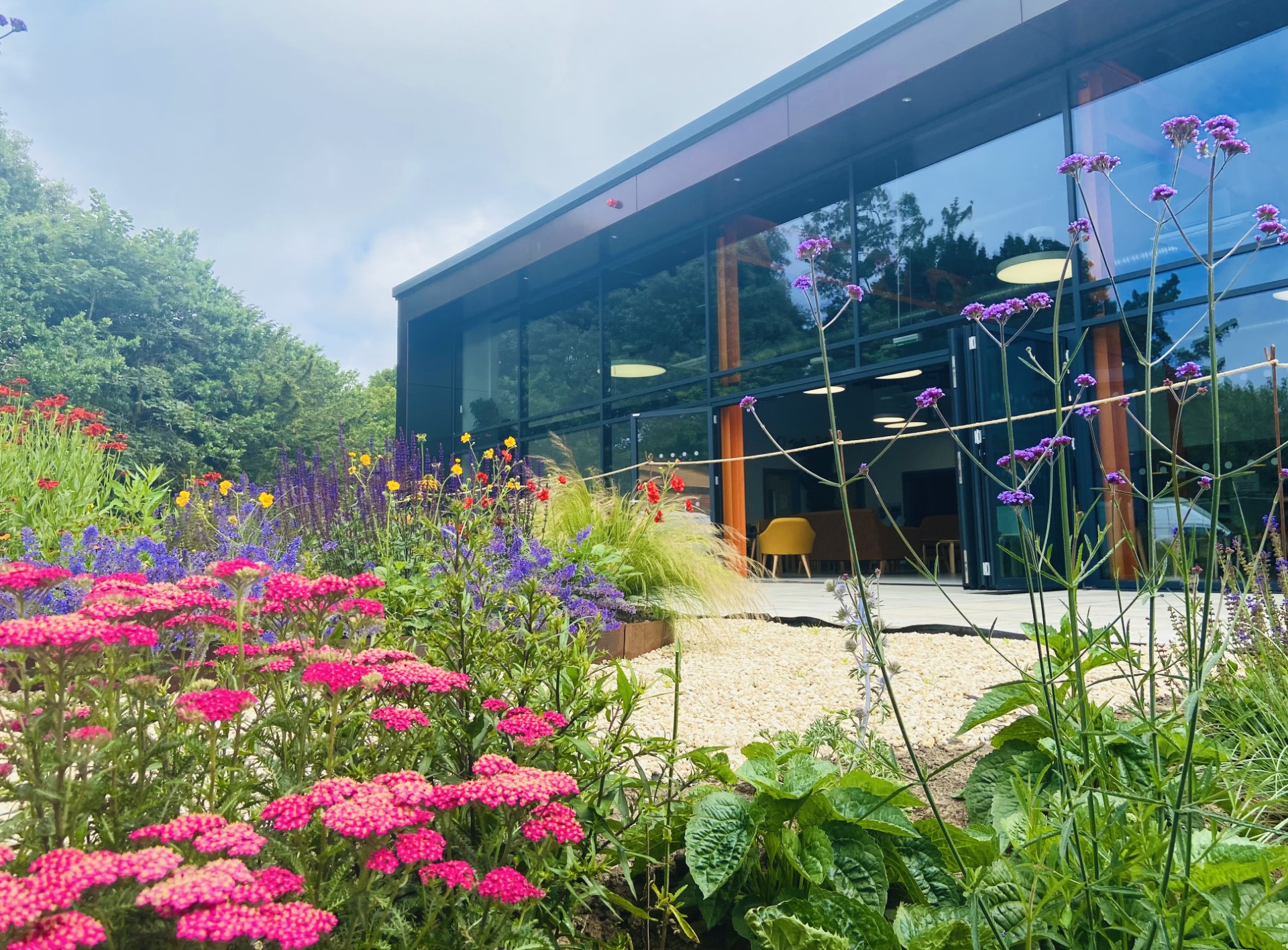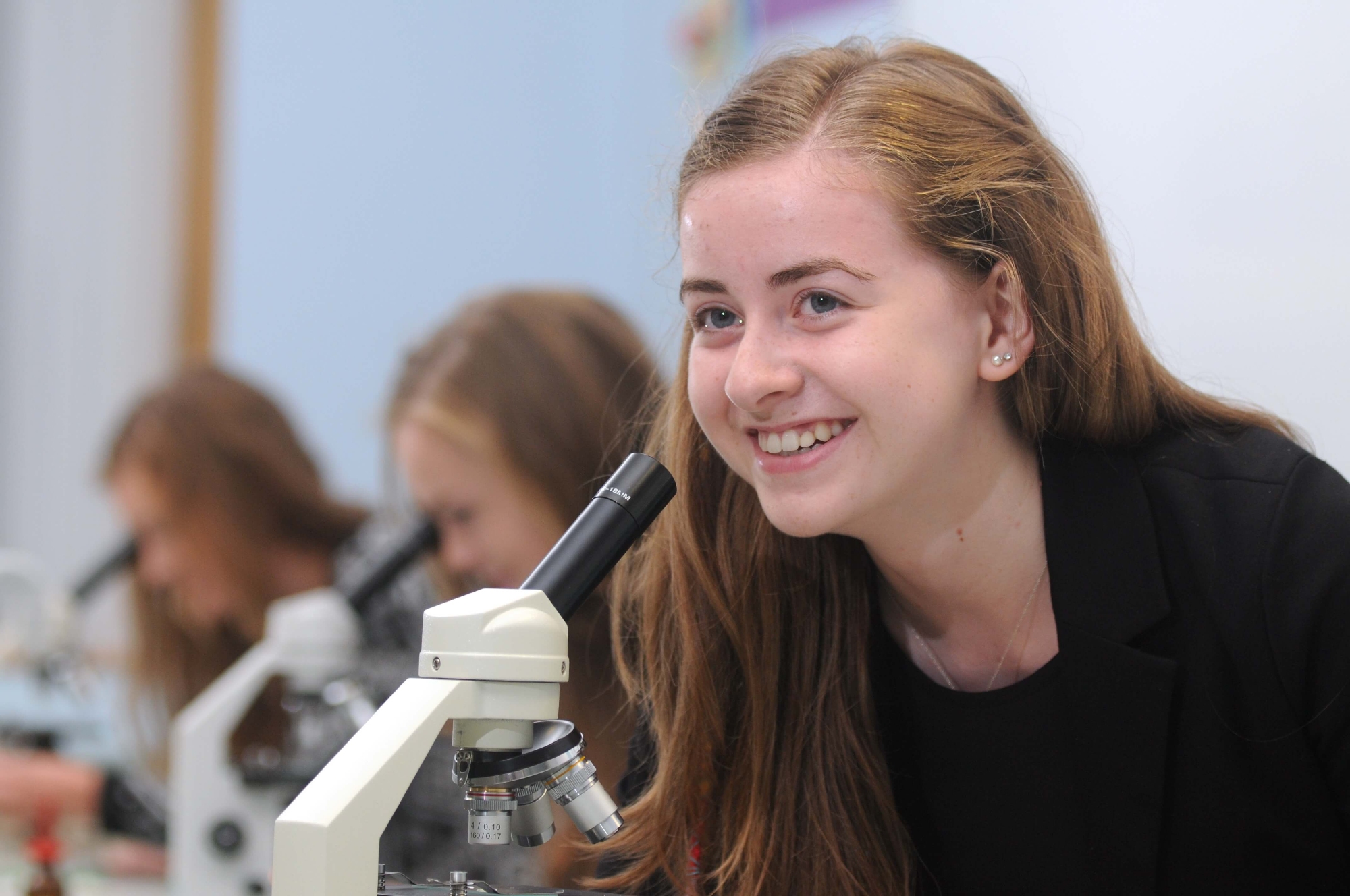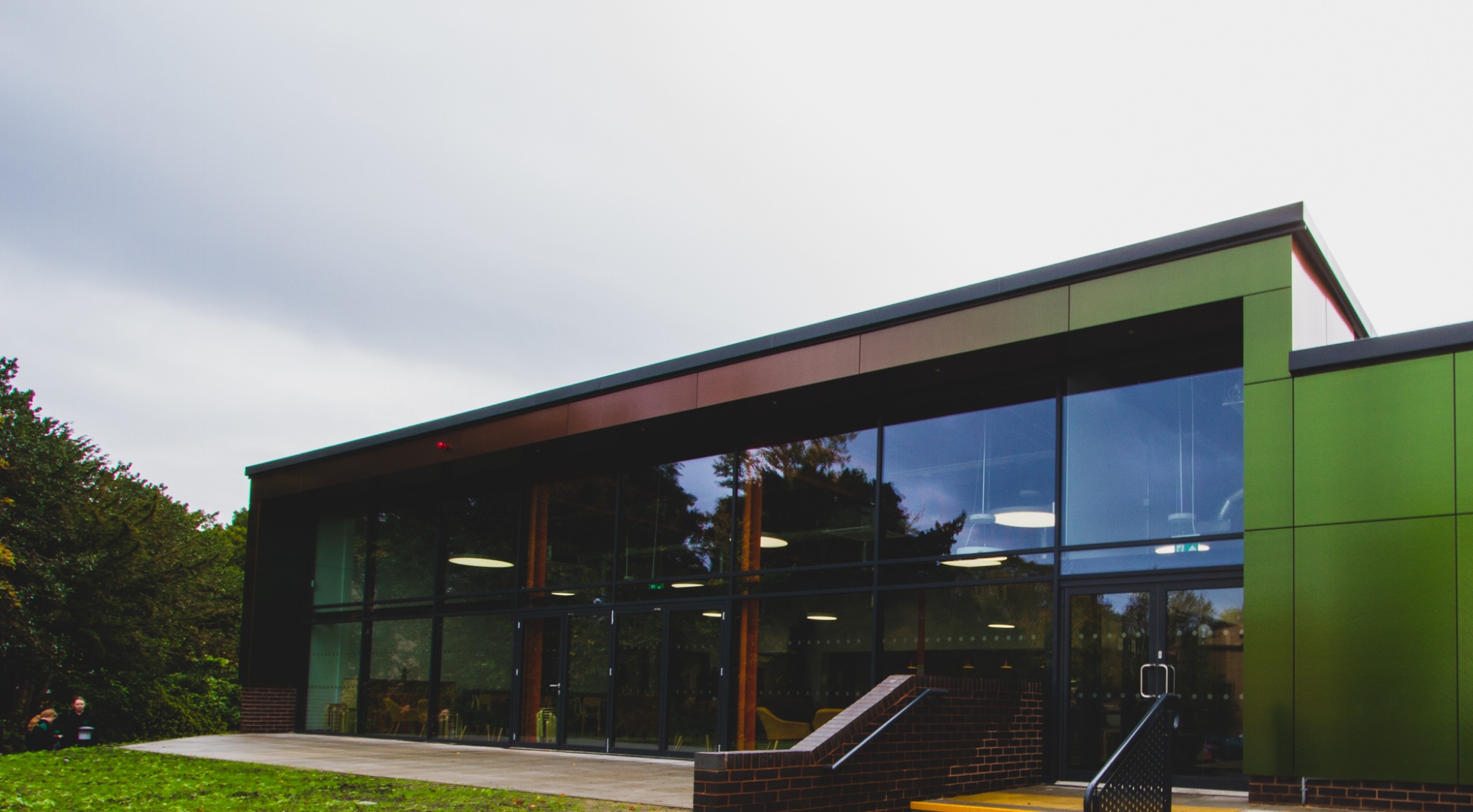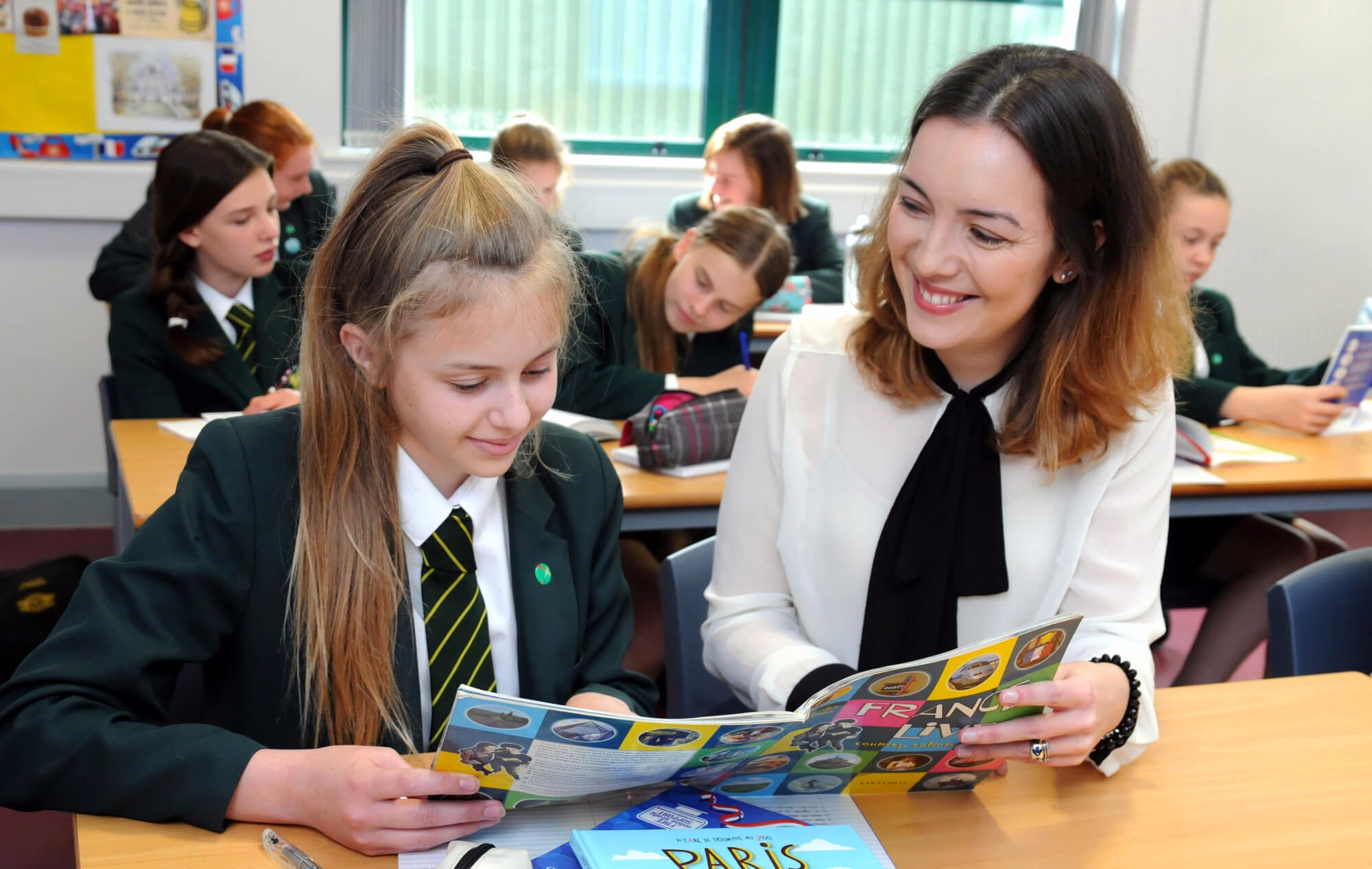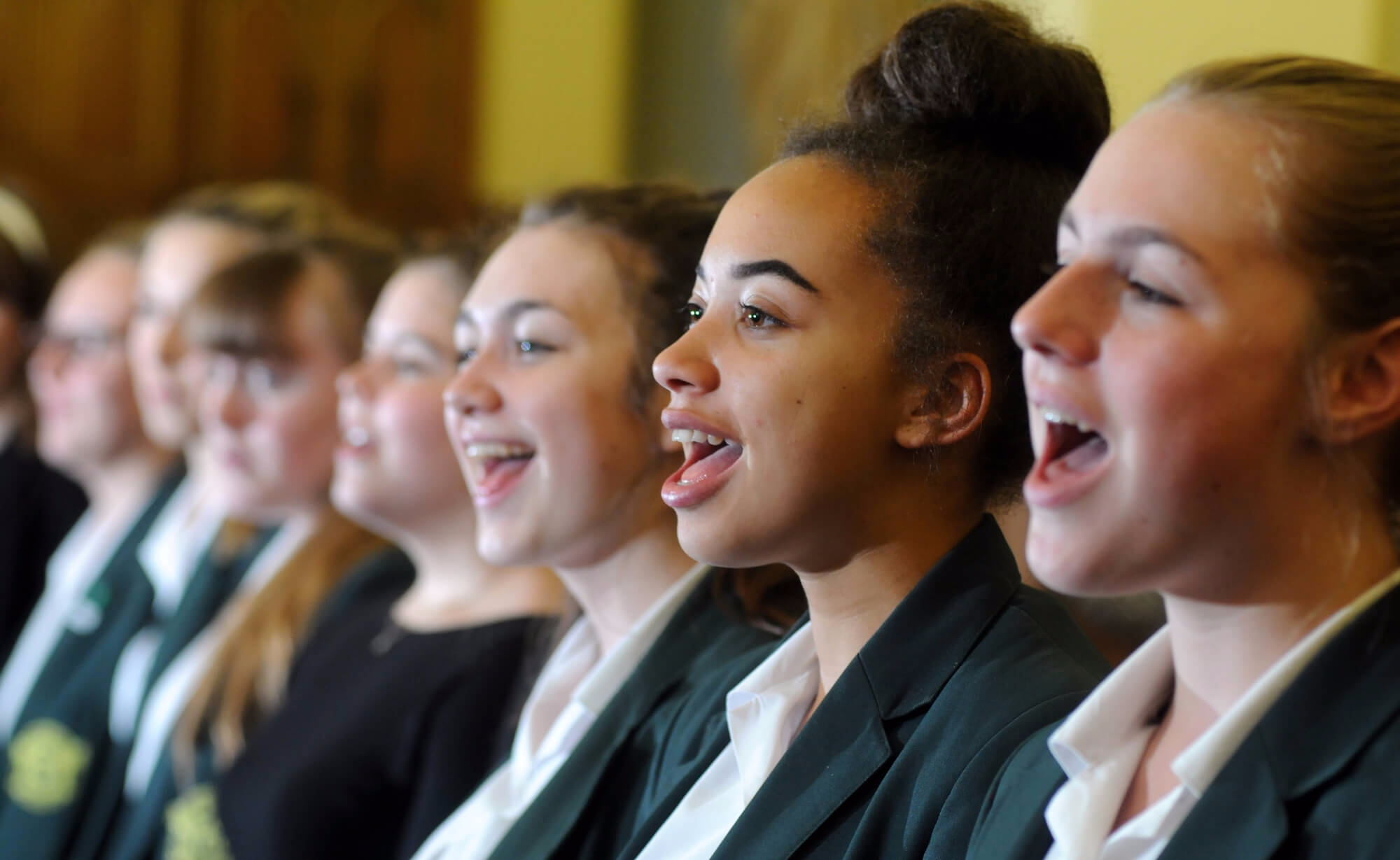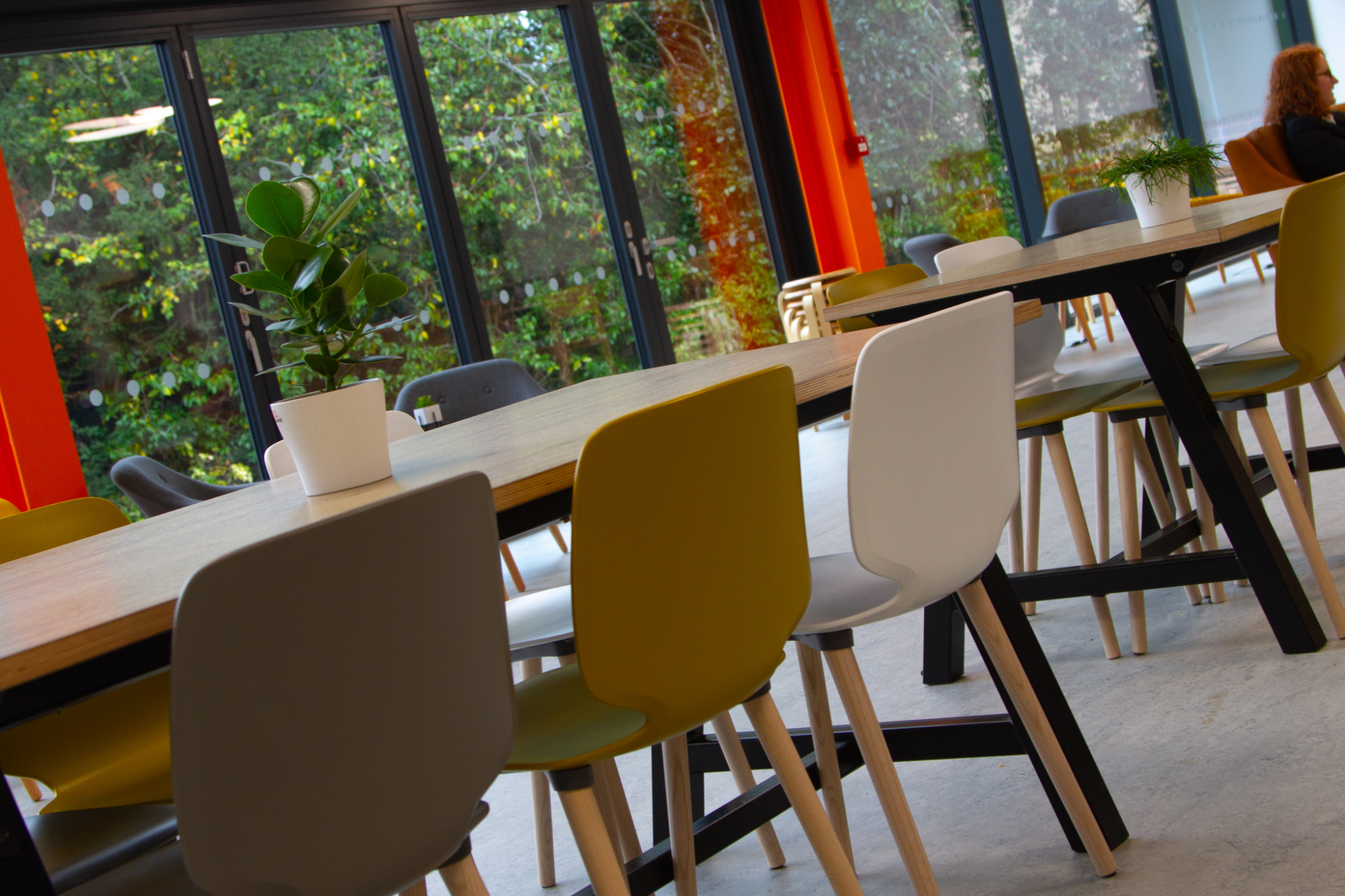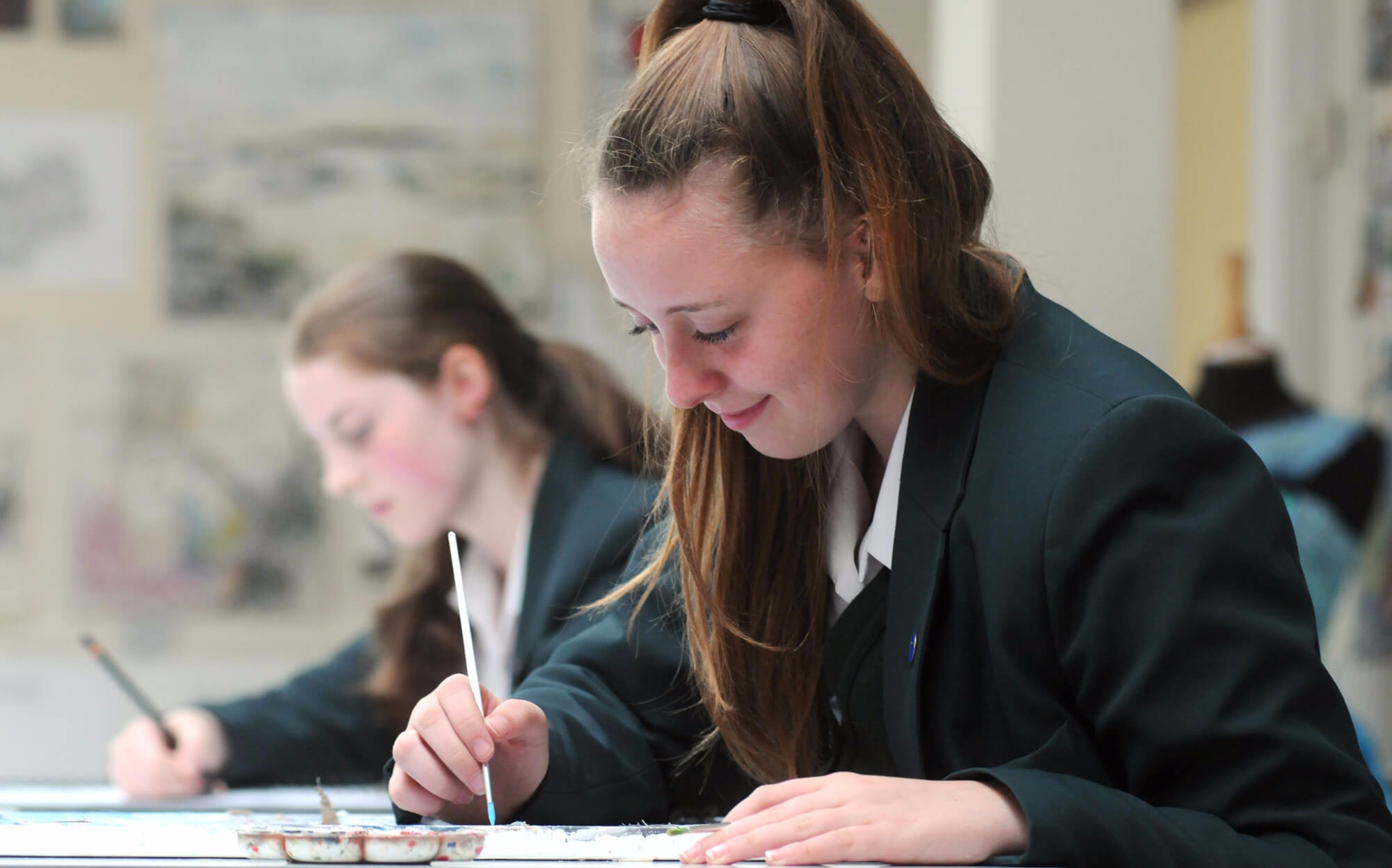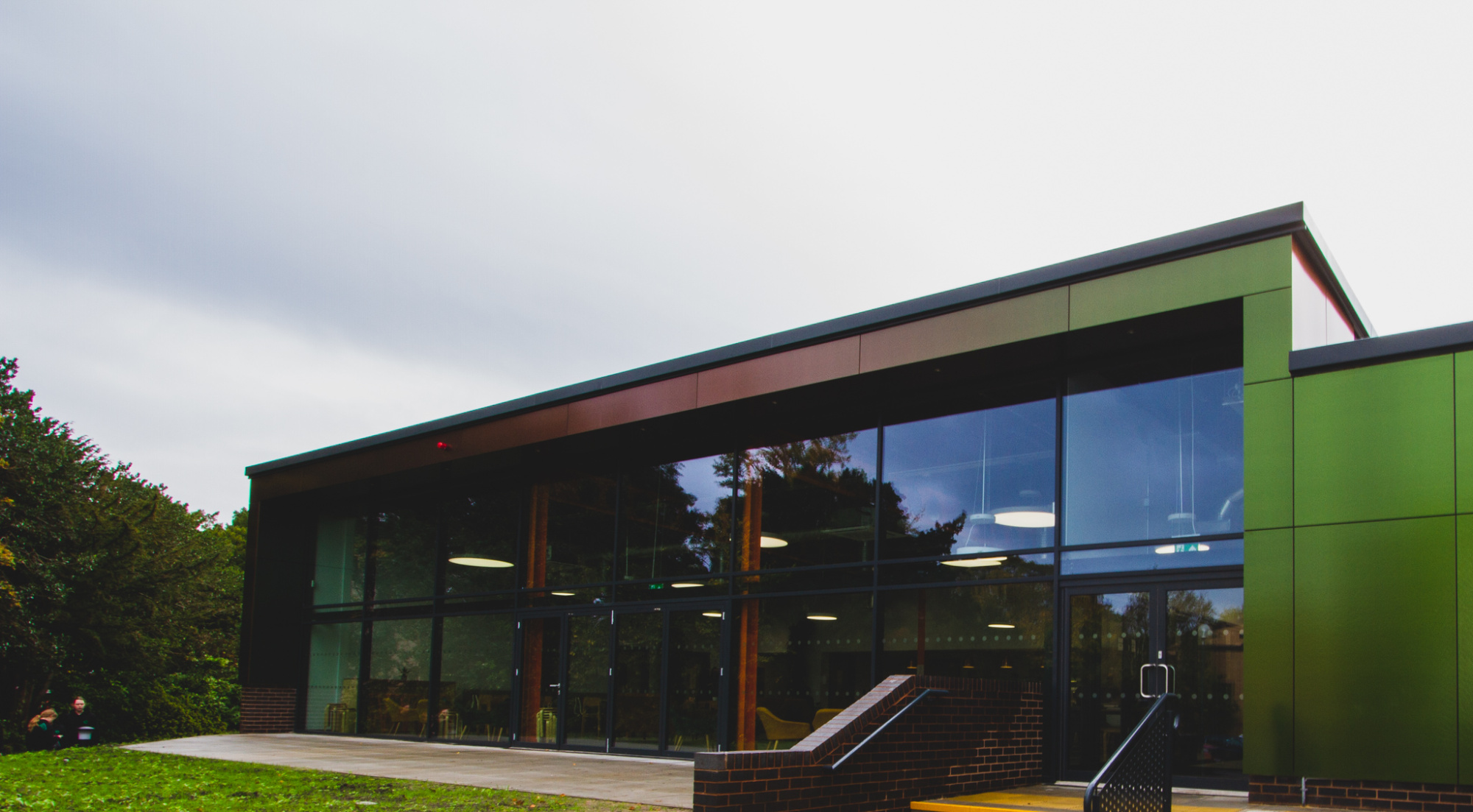Year 9 Milestones
We aim "high" to ensure that all of our pupils make outstanding progress
|
‘Baseline Level’ |
'National Expected Progress’ | 'Challenge progress’ |
|---|---|---|
|
We use data provided by Fischer Family Trust to set your daughter's baseline targets. These targets are set using Key Stage 2 SAT results alongside various other factors , and are the minimum levels/grades your daughter should achieve at the end of each year. In Year 7 we use Cognitive Abilities Tests to determine your daughter's learning style. Your daughter will also undertake annual numeracy and literacy tests in order to swiftly identify any potential barriers to learning, and modify provisions accordingly. |
The Government expects all pupils to make a minimum 3 levels of progress from Years 7-11. For example, a pupil who achieves a level 4 at Key Stage 2 would be expected to achieve at least a C grade at GCSE level. A pupil who achieves a level 5 at Key Stage 2 would be expected to achieve at least a B grade at GCSE level. |
Many pupils are set a target to make 4 levels of progress from Years 7-11. For example, a pupil who achieves a level 4 at Key Stage 2 may be set a target to achieve at least a B grade at GCSE level. A pupil who achieves a level 5 at Key Stage 2 may be set a target to achieve an A/A* grade at GCSE level. |
|
Baseline |
1 level of |
2 levels of |
3 levels of |
4 levels of |
5 levels of |
|---|---|---|---|---|---|
| 4 (a, b or c) | E | D | C | ||
| 5 (a, b or c) | D | C | B |
Currently, GCSEs are being reformed. By the time that your daughter completes her GCSE exams in 2019, she will be awarded grades 9 - 1.
ACADEMIC EXPECTATIONS
Embarking on GCSE courses requires commitment and dedication from you. The satisfaction you will gain as a consequence of achieving well at GCSE will more than compensate for the efforts you need to make.
You need to take an active part in your own learning.
Pay keen attention in lessons. Prepare your work thoroughly. This means doing homework each evening according to your Homework Timetable. In Years 10 and 11 you need to spend two hours each night doing homework if you are to do justice to your ability. Remember once time is wasted it is gone forever. Later in life you will be competing with other people for places on courses and later again for jobs. Ensure that you do all you can now so that you will be successful later.
Be prepared to ask for help if you do not understand a topic. If you know you are going to be absent, prepare and hand in work ahead of that absence or if this is not practical, as soon as possible, on your return.
Ensure that any missed work is copied up.
A business like attitude will help you to succeed and will enable you to avoid falling into the unpleasant situation of feeling overburdened and unable to cope. Feeling stressed about work will not produce either happiness or success!
GCSE courses will challenge you academically but you have the ability to do really well. By engaging in the work and acquiring good patterns of study you will enjoy this challenge. All pupils at Upton Hall School are expected to achieve at least five GCSEs at grades 9 - 4 and experience shows that the vast majority have the ability to achieve 9 - 7 grades in most subjects.
To help you measure your own progress you will be set a minimum target grade in each subject based on your achievements at Key Stages 2 and 3. You should be determined to match this grade if not exceed it.
As pupils assess their own performance and teachers track the progress pupils are making against the target grades, it becomes clear that for some individual pupils the number of subjects is too great. Following the Mock Examinations in Year 11, consultation takes place between the pupil, her parents, the Head of Year and the Assistant Head responsible for Curriculum to find what best suits the individual pupil. In some cases it is necessary to reduce a pupil’s workload. This is achieved by allowing her to drop one or, in exceptional circumstances, two subjects.
In certain circumstances a pupil may be advised to follow a reduced curriculum from the beginning of Year 10. This is about shaping what we have on offer to suit the individual needs of the pupils.
Homework and the Pupil Planner
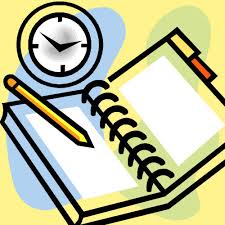
![]()
Pupils at Upton are given a pupil planner at the beginning of each school year and are expected to use it as a part of developing appropriate organisational and study skills.
The following points outline how teachers of pupils in Year 9 support the use of homework diaries in their classes as part of establishing good homework habits.
- When homework is given, instructions are clear and pupils are given time in class to write these requirements in their diary.
- Homework is checked regularly. Pupils who don't complete homework will be asked for their diary, have their pupil planner checked and can expect to be asked to do missed work during lunch time at school.
- For pupils who have difficulty in establishing a regular homework routine, contact will be made with parents or guardians. This may be via a phone call, a message in the pupil planner or by a more formal letter. There are pupils who require extra support to ensure that homework is completed and at this point their use of the diary will come under scrutiny. Support to establish better study habits can take different forms but in general involves collaboration between the pupil, Form Tutor, Head of Year, teachers and parents. If you feel that your child needs extra support to use her diary please get a message to your child’s Form Tutor at school.
How You Can Help At Home
It is very useful if pupils plan what time each evening they are going to sit down to do homework. These may be different times on different days depending on other commitments. Year 9 pupils are expected to set aside up to 120 minutes per night for homework.
It is easier for pupils to focus on their homework if the house is relatively quiet during this designated homework time. It also helps to have the TV off during this time.
If possible, encourage your daughter to complete homework on the night that it is set. This avoids having lots of homework piling up and too much to do on a particular evening.
Ask to see the pupil planner - pupils are aware that these are not personal diaries and that they will be asked to show them to teachers and to parents. We ask you to sign the diary once each week.
Other Points
There is useful information in the Pupil planner - both at the front and back, including a message to parents.
Pupils may also use this diary to record reminders about sports activities, music lessons, personal achievements, etc. Establishing a regular homework routine in Year 9 is a major contributing factor to successful study techniques further up the school.
The use of a planner and associated planning skills will be advantageous to our pupils in the busy adult world that follows Upton and University.

